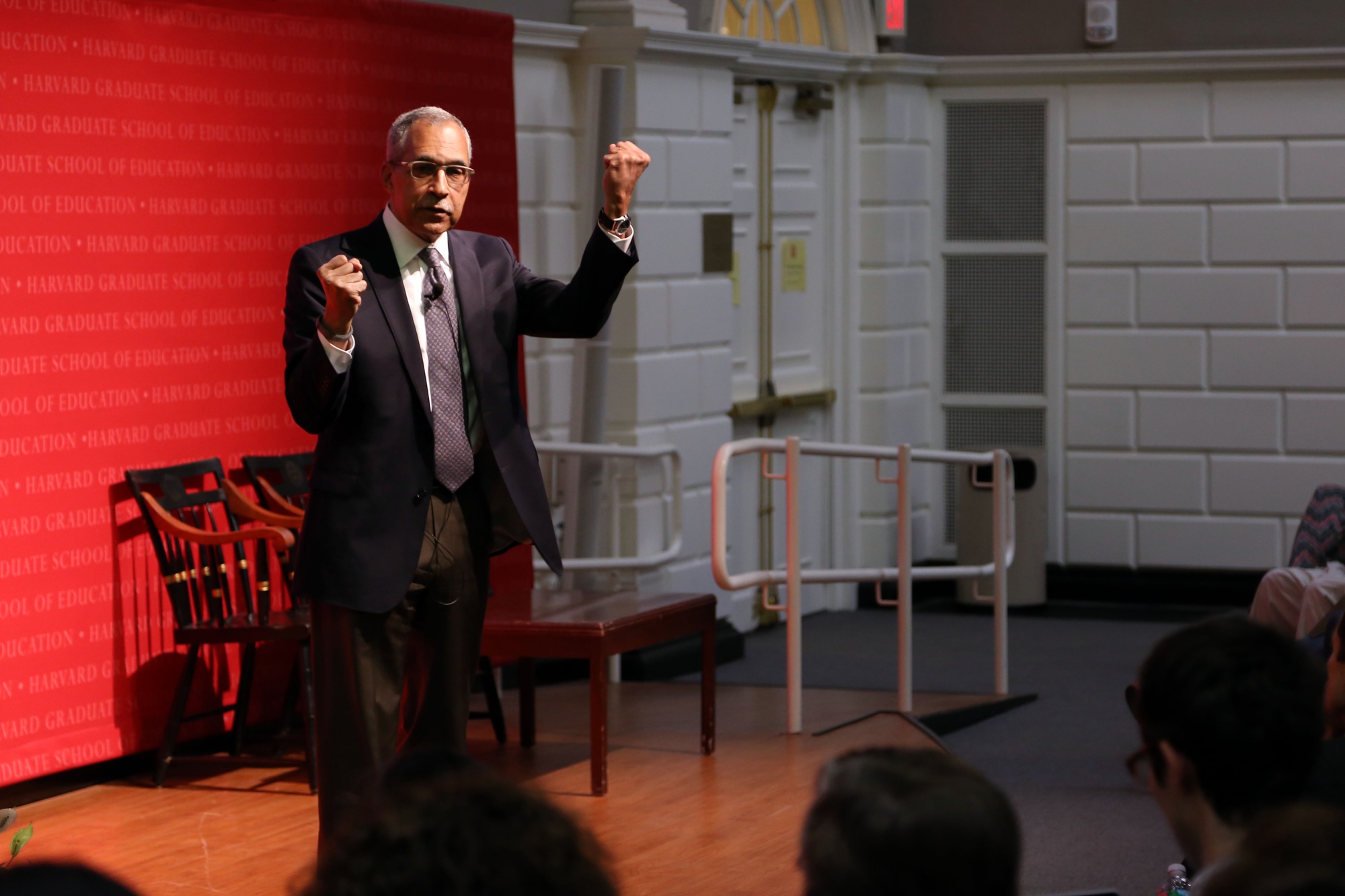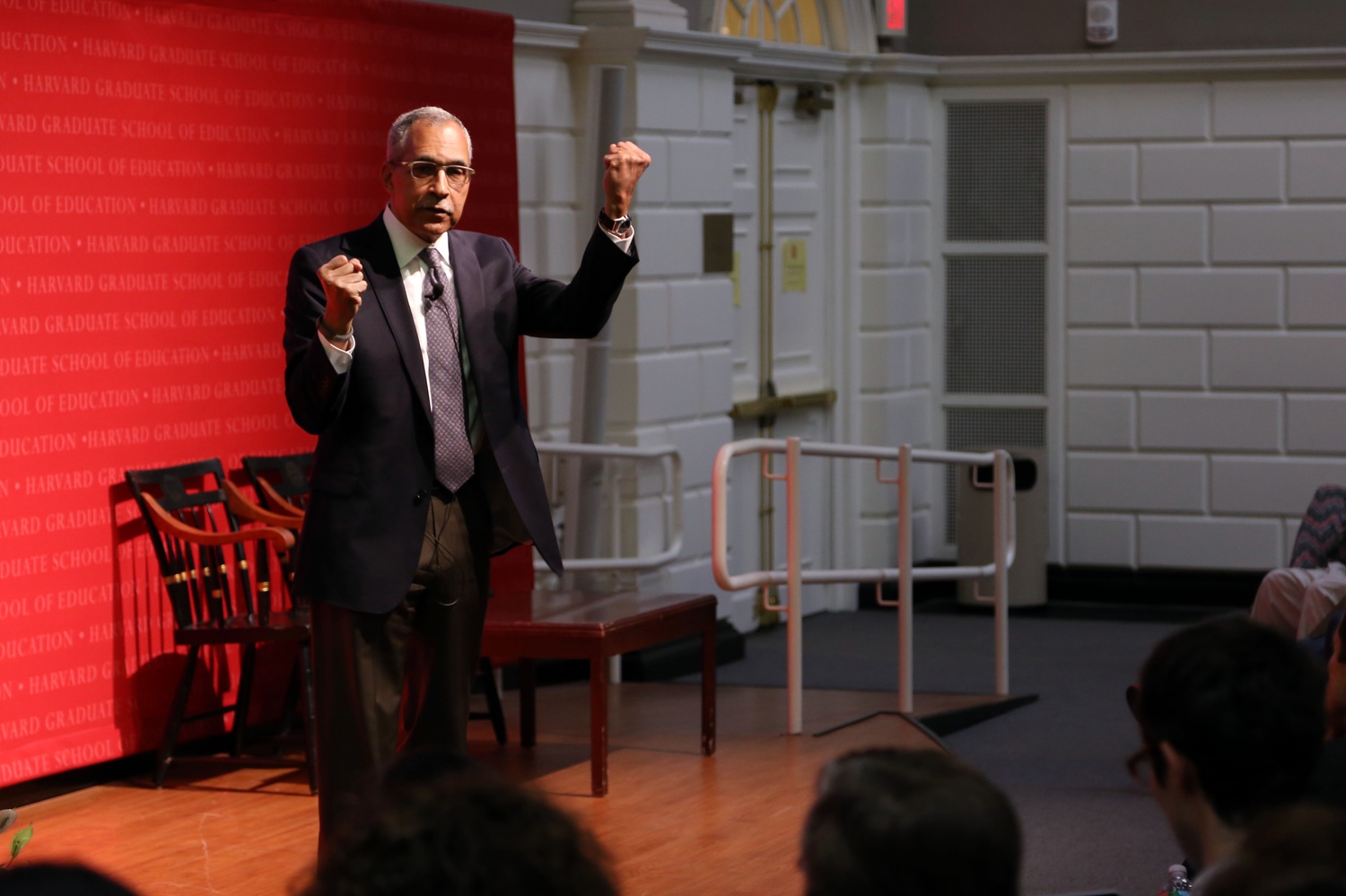
News
Summers Will Not Finish Semester of Teaching as Harvard Investigates Epstein Ties

News
Harvard College Students Report Favoring Divestment from Israel in HUA Survey

News
‘He Should Resign’: Harvard Undergrads Take Hard Line Against Summers Over Epstein Scandal

News
Harvard To Launch New Investigation Into Epstein’s Ties to Summers, Other University Affiliates

News
Harvard Students To Vote on Divestment From Israel in Inaugural HUA Election Survey
Author of Whistling Vivaldi Discusses 'Stereotype Threat'

Renowned social psychologist Claude M. Steele spoke of the effects and remedies of the “stereotype threat”—a concept that he developed in his influential work “Whistling Vivaldi: How Stereotypes Affect Us and What We Can Do”—at a forum at the Graduate School of Education on Wednesday night.
In a filled Longfellow Hall, GSE Dean James E. Ryan opened the event by underlining the importance of engaging in conversations about diversity, especially in a community of educators. He mentioned that Steele’s “Whistling Vivaldi” is a required summer reading for all GSE students and faculty members.

In Steele’s speech, he summarized years of research that he has conducted on the “stereotype threat,” which occurs when individuals underperform in tasks for which negative stereotypes about aspects of their identities—be it race, age, gender, or nationality—exist. According to Steele, this is because awareness of stereotypes takes up cognitive resources that can otherwise be devoted to performing the task at hand.
Steele mentioned an experiment in which female students did worse than male students on a difficult mathematics test, even though both were equally skilled in mathematics.
“When the test is very difficult, that’s when the stereotype interferes with one’s thinking and processing that is needed to do well in the task, and performance goes down,” he said. “It’s like multitasking.… It takes a toll.”
His research has shown that a solution as simple as informing female students beforehand that “women traditionally perform as well as men on this test” can eliminate the performance gap.
When proposing potential remedies to the threat and in answering a question about what the Harvard community should do in light of these findings, Steele stressed the importance of promoting conversations across group boundaries and putting oneself in others’ shoes.
“[We should] try to see the experience of different students and colleagues from the standpoint of what it is like to be them,” he said. “I think this is one of the most profound challenges that this increasingly diverse American society has to deal with.”
Audience members, many of whom were educators, said Steele’s insights helped inform their own work.
“I work with minority students, and he provided a lot of insights into the external pressures that they face,” said Benjamin J. Felton, a GSE student.
—Staff Writer Zara Zhang can be reached at zara.zhang@thecrimson.com.
Want to keep up with breaking news? Subscribe to our email newsletter.
